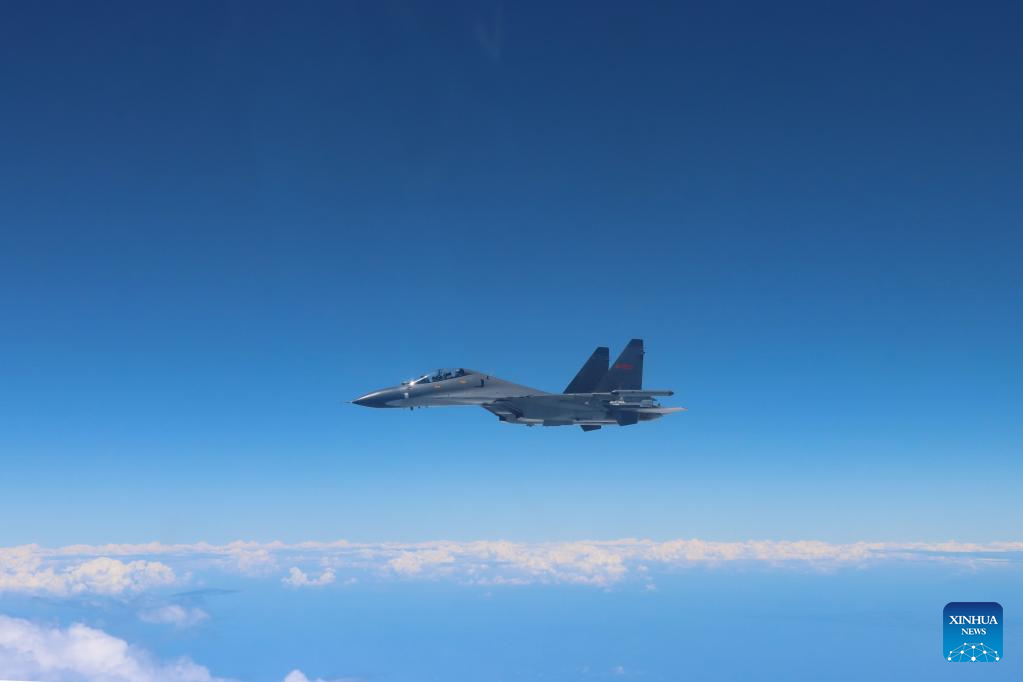
A warplane of the Eastern Theater Command of the Chinese People's Liberation Army (PLA) conducts operations around the Taiwan Island, Aug 4, 2022. [Photo/Xinhua]
This is an editorial from China Daily.
The provocative visit to Taiwan by Nancy Pelosi, the speaker of the US House of Representatives, at the beginning of the month has heralded the intensifying of Washington's provocations on the Taiwan question.
In the fourth such visit to the island this month, and, like the others, in total disregard of peace and stability in the Taiwan Straits and the welfare of residents on the island, US Senator Marsha Blackburn, a member of the Senate Commerce and Armed Services committees, arrived in Taipei on Thursday night on board a US military aircraft.
China's response to her visit was a reminder to Washington that any move by the United States that breaches the one-China principle will not be without consequences.
The Eastern Theater Command of the People's Liberation Army announced on Friday afternoon that it had organized a multi-service and live fire joint combat-readiness patrol and realistic combat exercise in the seas and airspace around the Chinese island in response to her visit.
That two US warships transited the Taiwan Straits on Sunday, less than a month after the PLA staged massive military drills around the island of Taiwan following the visit by Pelosi, was no doubt intended to show the US will not be daunted by the PLA's series of military moves to deter foreign interference and the collusion of the secessionists in Taiwan with foreign forces.
"These ships transited through a corridor in the strait that is beyond the territorial sea of any coastal state," the US Navy disingenuously claimed.
Yet having repeatedly reaffirmed it upholds its one-China policy, the US is aware that the waters of the Taiwan Straits, which extend from the shores of both the Chinese mainland and the island of Taiwan to the middle of the Straits cannot be considered international waters and that China exercises jurisdiction in various forms over the Straits.
The US' showboating shows that as far as Washington is concerned Taiwan is now the key pressure point on Beijing.
But the incessant US provocations over the Taiwan question will not only further consolidate Beijing's resolve to defend China's sovereignty and territorial integrity but also make more people in the world realize that despite all the ballyhoo it makes about China being "aggressive" and a "rule-breaker", it is the US that is the real troublemaker, argumentatively and pugnaciously muscling into the region's internal affairs.
By signaling to like-minded US allies that it is determined to play the "Taiwan card" and to the secession-seeking Democratic Progressive Party authorities on the island that it will continue to work hand-in-glove with them, Washington is putting barriers in the way of the peaceful resolution of the Taiwan question and forcing different parties, including itself, onto a dangerous road.

 中文
中文



